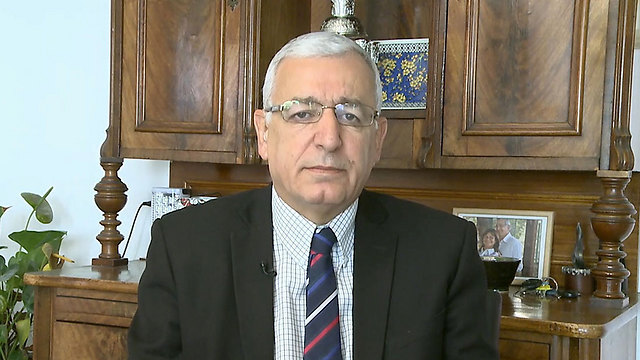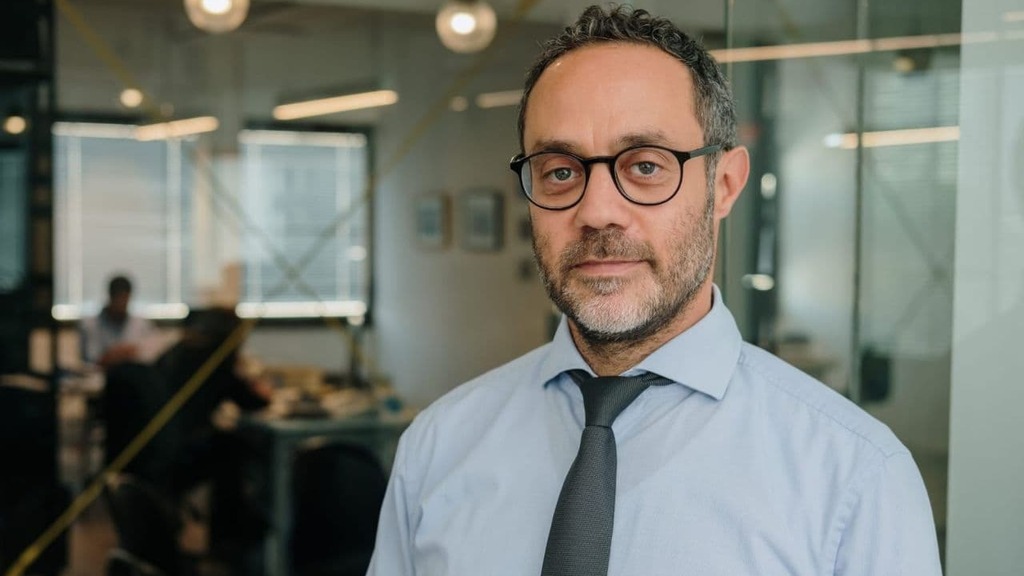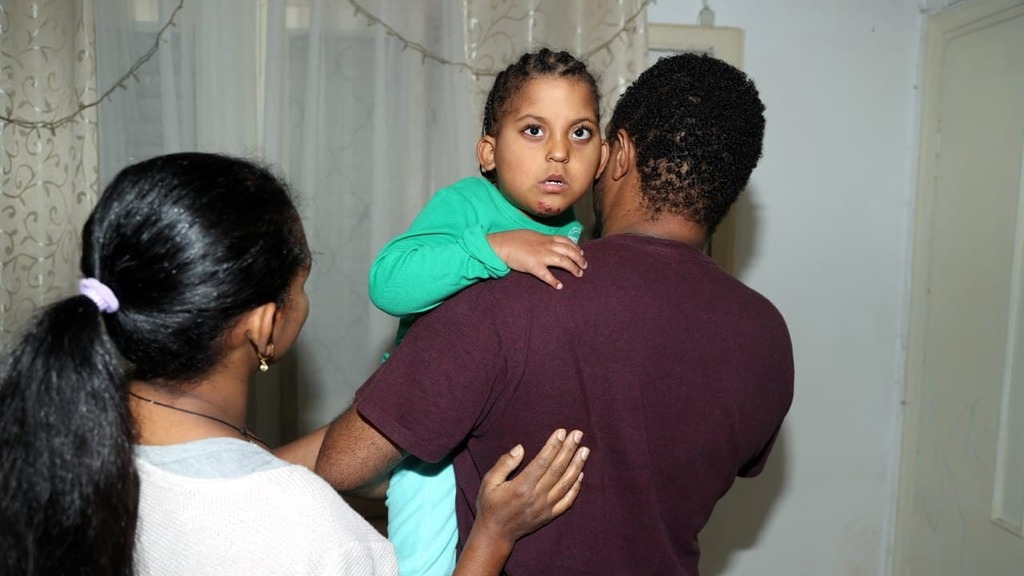Getting your Trinity Audio player ready...
Miranta Dibabe, who only recently celebrated her fifth birthday, was born in Israel with very complex and severe chromosomal disorder that threatens her life.
Despite this, the Population and Immigration Authority is seeking to deport her and her family back to Ethiopia.
Among the many symptoms caused by her disorder, Miranta suffered from respiratory and heart failure, leading to heart surgery before the age of three.
She also suffers from damaged brain development, severe breathing difficulties and sleep apnea that requires breathing apparatus.
Miranta also suffers from severe cognitive impairment, cannot speak or understand instructions and uses a wheelchair fitted with an oxygen machine.
Despite these life-threatening disorders and her need for round-the-clock care by a team of professionals, Miranta is facing deportation back to war-torn Ethiopia with her father Yedenkacho, her mother Hiwat and her two younger siblings.
"We came here because where we lived was dangerous, we wanted a better life," says Hiwat. "My daughter has a lot of problems and we are at the hospital all the time. She has to be connected to an oxygen device or she will die.
“I'm with her all the time, checking that she's breathing and that she's okay. She is alive thanks to a lot of treatment, a lot of doctors and a lot of medication. How can I take her to a country that has no medical solution for her? What kind of mother would I be to let my child die when I know that in Israel she will be saved?"
While the Immigration Authority seeks the immediate deportation of Miranta and her family, the courts ruled that it had not considered all the medical implications of Miranta’s case, and ordered it be debated by an inter-ministerial humanitarian committee.
3 View gallery


Population and Immigration Authority Director General Prof. Shlomo Mor-Yosef
(Photo: Archive)
The committee, headed by the Authority’s director-general Prof. Shlomo Mor-Yosef, later determined that Miranta’s case was not particularly extreme despite the medical evidence presented to the committee, and concluded that it was not proven that Miranta could not receive life-saving treatment in Ethiopia.
Tomer Warsha, a lawyer specializing in immigration in Israel said: “As people who deal a lot with humanitarian cases, even we were amazed at the insensitivity and contempt for the life of a five-year-old girl.
“Miranta's medical condition is one of the most difficult we have seen. The treatment she requires is multi-systemic and complex. It is intolerable that a five-year-old girl will be cast to her probable death by this country's authorities.”
3 View gallery


Tomer Warsha: We were amazed at the insensitivity and contempt for the life of a five-year-old girl
(Photo: Anton Mislawsky)
The Population and Immigration Authority said: "An investigation into the case showed that this is a couple of Ethiopian parents who infiltrated Israel at separate times, and have been residing in Israel for a long time after applying for asylum.
“In 2018, the two, together with one girl [out of their three children] applied for asylum status for humanitarian reasons. Their request was rejected at various levels, but in the end it was decided to refer them to the inter-ministerial committee.
"We also took into account the opinion of the Health Ministry that it was not proven that the girl would not receive appropriate treatment in her country of origin. The state even offered to provide the family with the supply of medicine required during its integration back into their homeland.”


